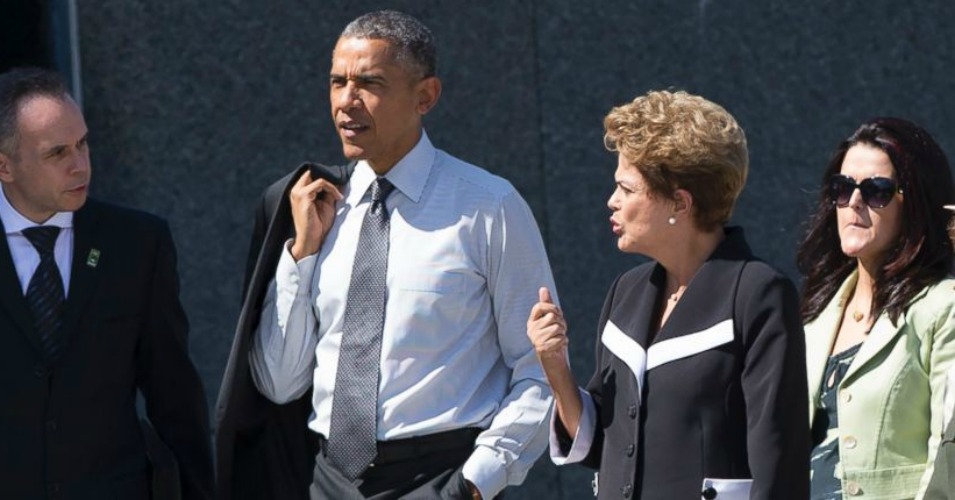Just days after Brazil President Dilma Rousseff’s official working visit to the United States, during which she and President Barack Obama issued a joint communique affirming their “mutual respect and trust,” WikiLeaks and The Intercept on Saturday, July 4 published a “top secret U.S. National Security Agency (NSA) target list of 29 key Brazilian government phone numbers that were selected for intensive interception,” or phone-tapping.
Noting that last week’s visit to the U.S. was one “she had delayed for almost two years in anger over prior revelations of NSA spying on Brazil,” The Intercept‘s Glenn Greenwald and David Miranda argue that “these new revelations extend far beyond the prior ones and are likely to reinvigorate tensions.”
As WikiLeaks editor-in-chief Julian Assange said in a press statement accompanying the leak: “Our publication today shows the U.S. has a long way to go to prove its dragnet surveillance on ‘friendly’ governments is over.”
The list of priority targets includes not only Rousseff but also her assistant, her secretary, her chief of staff, her Palace office, and the phone in her Presidential jet. According to WikiLeaks, the NSA targeted “not only those closest to the President, but waged an economic espionage campaign against Brazil, spying on those responsible for managing Brazil’s economy, including the head of its Central Bank.”
This is notable because, as Greenwald and Miranda write, “Brazilians are particularly sensitive to economic espionage by the U.S., both for historical reasons (as a hallmark of American imperialism and domination on the continent) and due to current economic concerns (for that reason, the story of NSA’s targeting of Petrobras was arguably the most consequential of all prior surveillance stories).”
The phones of Brazil’s foreign minister as well as its ambassadors to Germany, France, the EU, the U.S., and Geneva were also on the list.
In an interview with The Intercept, Gilberto Carvalho, a top aide to Rousseff, described his reaction to the spying revelations as “maximum indignation.”
Greenwald and Miranda continue:
For his part, the Central Bank’s Pereira da Silva said his reaction is to fully embrace the stinging denunciation of NSA’s electronic surveillance contained inDilma’s September, 2013 United Nations speech, delivered while Obama waited in the hallway to speak. That blistering speech was widely regarded in Brazil as a high point of Dilma’s leadership on the world stage.
Speaking from the General Assembly podium, she declared that “tampering in such a manner in the affairs of other countries is a breach of international law and is an affront of the principles that must guide the relations among them, especially among friendly nations.” She condemned U.S. mass surveillance as a “grave violation of human rights and of civil liberties” and, in a rare invocation of her own personal history as a rebel against the country’s oppressive military dictatorship, said: “As many other Latin Americans, I fought against authoritarianism and censorship, and I cannot but defend, in an uncompromising fashion, the right to privacy of individuals and the sovereignty of my country. In the absence of the right to privacy, there can be no true freedom of expression and opinion, and therefore no effective democracy.”
Saturday’s leak comes on the heels of previous publications by WikiLeaks that show systematic U.S. targeting of the highest officials including three French presidents and the current chancellor of Germany. On Friday, CNN and The Intercept reported that the U.S. government spied on German journalists as well.

